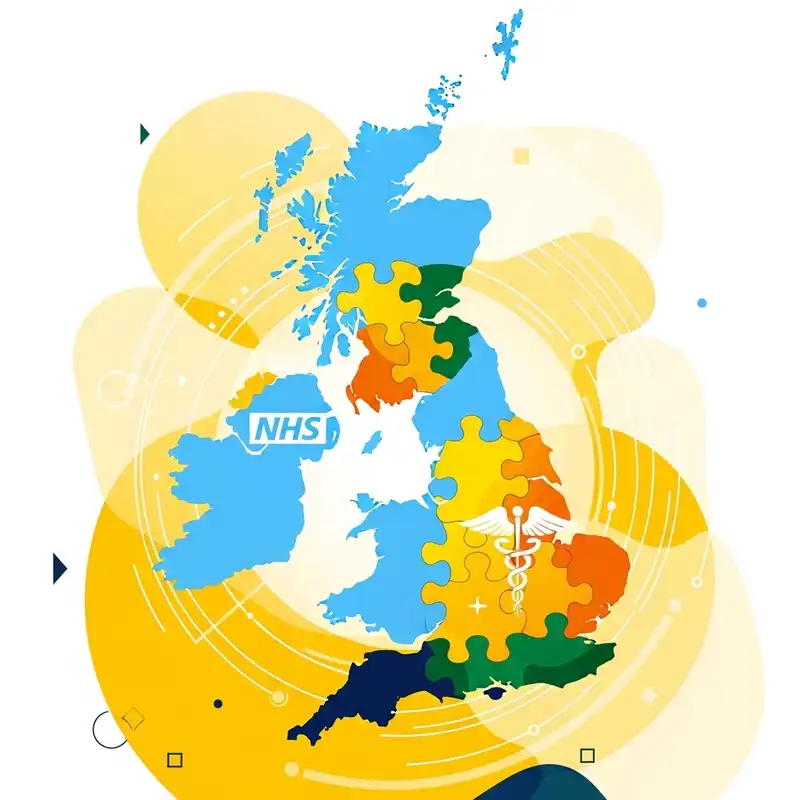Best Life Insurance with Income Protection in the UK

In an uncertain world, securing your financial future and that of your loved ones is paramount. We plan for milestones like buying a home, starting a family, or launching a business, but what about planning for the unexpected? What would happen if your income suddenly stopped due to illness or injury? Or, in the worst-case scenario, if you were no longer around to provide for your family?
These are sobering questions, but addressing them is the cornerstone of responsible financial planning. In the UK, two of the most powerful tools at your disposal are Life Insurance and Income Protection. While often considered separately, combining them into a single, integrated policy can offer a streamlined, comprehensive, and potentially more cost-effective solution.
This definitive guide will explore the world of integrated life and income protection policies. We will delve into how they work, who they are for, and how to choose the best cover for your unique circumstances. As expert protection advisers, we at WeCovr are here to demystify the process and help you navigate the market with confidence.
WeCovr compares integrated life and income protection policies
The concept of combining different types of insurance isn't new, but its application in the personal protection market has become increasingly sophisticated. An integrated policy, often referred to as a 'menu plan' or a 'multi-benefit policy', allows you to bundle several types of cover from a single insurer under one plan.
Instead of taking out a standalone life insurance policy with one company and a separate income protection policy with another, a menu plan lets you select both (and often other covers like critical illness) from a single provider. You have one application process, one set of paperwork, and one monthly direct debit.
Why is this significant?
- Convenience: Managing multiple policies can be cumbersome. An integrated plan simplifies everything, giving you a clear overview of your entire protection portfolio in one place.
- Potential Cost Savings: Insurers often incentivise customers to take out more than one type of cover. While not a universal rule, bundling can sometimes result in a lower overall premium compared to buying each policy separately.
- Tailored Protection: These plans are highly flexible. You can choose different amounts and terms for each type of cover within the plan, creating a bespoke safety net that perfectly matches your family's needs and financial obligations.
At WeCovr, we specialise in helping our clients build these tailored plans. By comparing policies from all the UK's leading insurers, we can identify the most suitable and competitive options, ensuring your cover is robust, affordable, and perfectly aligned with your life's journey.
Understanding the Core Components: Life Insurance vs. Income Protection
Before diving into the benefits of combining these policies, it's crucial to understand what each component does. They are designed to protect against two fundamentally different, yet equally disruptive, financial events.
Life Insurance: A Financial Lifeline for Your Loved Ones
Life Insurance pays out a tax-free lump sum or a regular income to your beneficiaries if you pass away during the policy term. Its primary purpose is to replace the financial support you would have provided, ensuring your family can maintain their standard of living, pay off debts, and face the future with greater security.
There are several types of life insurance, each suited to different needs:
| Type of Life Insurance | How It Works | Best For |
|---|---|---|
| Level Term | The payout amount remains the same throughout the policy term. | Covering an interest-only mortgage, providing a lump sum for family living costs. |
| Decreasing Term | The payout amount reduces over time, typically in line with a repayment mortgage. | Covering a repayment mortgage or other loan that decreases over time. It's usually the cheapest option. |
| Whole of Life | Guarantees a payout whenever you die, as long as you keep paying the premiums. | Covering a future Inheritance Tax bill or leaving a guaranteed legacy. |
| Family Income Benefit | Instead of a lump sum, it pays out a regular, tax-free income until the end of the policy term. | Replacing a lost salary to cover regular family outgoings. |
According to the Association of British Insurers (ABI), a staggering 97.6% of all life insurance claims were paid out in 2023, demonstrating the reliability and importance of this cover.
Income Protection: Your Financial Stand-In When You Can't Work
What if you don't pass away, but an illness or injury prevents you from working for months, or even years? This is where Income Protection (IP) comes in. It's designed to replace a significant portion of your lost earnings with a regular, tax-free monthly payment.
Think of it as your own personal sick pay scheme that lasts far longer than any employer's. Research from the Office for National Statistics (ONS) shows that over 2.8 million people in the UK are out of work due to long-term sickness – a record high. Without a safety net, this can lead to devastating financial consequences.
Key features of Income Protection include:
- Benefit Amount: You can typically cover 50-70% of your gross (pre-tax) income. This is to ensure you still have an incentive to return to work.
- Deferred Period: This is the waiting period between when you stop working and when the payments begin. It can range from 4 weeks to 52 weeks. The longer the deferred period you choose, the lower your premium will be. You should align it with any sick pay you receive from your employer.
- Payment Period: This is how long the policy will pay out for. It can be for a fixed term (e.g., 2 or 5 years) or, more comprehensively, right up until you retire or return to work. Long-term policies offer the most robust protection.
For those in riskier trades like electricians, plumbers, or construction workers, a similar product known as Personal Sick Pay insurance is often available. These are typically shorter-term policies designed to cover immediate loss of earnings.
A Note on Critical Illness Cover
Often included in the 'menu' of options is Critical Illness Cover (CIC). This pays out a one-off, tax-free lump sum if you are diagnosed with one of a list of specific, serious conditions defined in the policy (e.g., certain types of cancer, heart attack, stroke). While Income Protection provides a replacement income, CIC provides a lump sum to help with one-off costs like adapting your home, paying for private treatment, or clearing debts.
The Power of Integration: Why Combine Life and Income Protection?
Now that we understand the individual parts, let's explore why putting them together in a single, integrated plan can be such a powerful strategy.
1. Comprehensive, Holistic Protection
Life is unpredictable. You face two primary financial risks: dying too soon, or being unable to earn a living for a prolonged period. A standalone life policy covers the first, and a standalone IP policy covers the second. An integrated plan covers both.
Consider this: If you only have life insurance, your family is protected if you die. But what if a serious back injury leaves you unable to work for three years? You'd have to rely on savings or state benefits, which are often insufficient. Conversely, if you only have income protection, what happens to your family's mortgage and living costs if you pass away?
An integrated plan closes both these gaps, providing a complete financial safety net for you and your family against life's most challenging events.
2. Streamlined and Simplified Management
The practical benefits of a single policy are significant.
- One Application: The application process for protection insurance can be detailed, requiring information about your health, lifestyle, and finances. Doing this once for all your cover is far more efficient.
- One Insurer: You have a single point of contact for any queries, changes, or claims.
- One Direct Debit: It's easier to budget and keep track of your outgoings with a single, consolidated premium payment.
This simplicity removes administrative hassle and gives you a clearer picture of your overall financial protection.
3. Potential for Cost-Effectiveness
While it's crucial to compare all options, bundling your cover can often be cheaper. Insurers' pricing models may offer a discount for taking out multiple benefits. More importantly, a broker like WeCovr can analyse the market to see whether a menu plan from one insurer is more cost-effective than two or more standalone policies from different providers. We do the complex calculations for you, ensuring you get the best value.
How Integrated Policies Work: A Closer Look
When you build an integrated policy, you're not just buying a pre-packaged product. You are actively designing your own protection plan. Here are some of the key mechanics to understand.
Linked vs. Independent Benefits
This is perhaps the most critical distinction to grasp when setting up a menu plan that includes Life Cover and Critical Illness Cover.
- Linked Cover: On a linked plan, a claim on one benefit will affect the other. For example, if you have £200,000 of Life Cover and £50,000 of Critical Illness Cover linked together, and you make a claim on the CIC, your life cover would typically reduce to £150,000. In some cases, a full CIC claim could end the life cover element entirely. This option is usually cheaper.
- Independent (or Separate) Cover: With this structure, the benefits are entirely separate. Using the same example, if you claimed the £50,000 of CIC, your £200,000 of life cover would remain fully intact. This provides more comprehensive protection but comes at a higher premium.
Income Protection within a menu plan is almost always independent of the life and critical illness elements. A claim on your IP will not reduce your life insurance sum assured.
Here’s a simple comparison:
| Feature | Linked Cover | Independent Cover |
|---|---|---|
| Structure | A claim on one benefit (e.g., CIC) reduces or ends the other (e.g., Life). | A claim on one benefit has no impact on the other. |
| Cost | Generally lower premiums. | Generally higher premiums. |
| Level of Protection | Less comprehensive, as a claim depletes your overall cover. | More robust, as each benefit remains intact after a claim. |
| Best For | Those on a tighter budget who still want some level of dual cover. | Those seeking the most complete and resilient protection possible. |
The Importance of Waiver of Premium
Waiver of Premium is a vital add-on for any integrated policy that includes Income Protection. If you become incapacitated and start receiving payments from your IP, this feature means the insurer will "waive" the premiums for your entire policy.
This is hugely important. It ensures that your life insurance (and any critical illness cover) remains active and in force for free while you are unable to work and earn. Without it, you might have to choose between paying for your protection policy or paying for your heating bill – an impossible choice when you're at your most vulnerable. We always recommend including a Waiver of Premium.
Tailoring Your Policy: Key Considerations for Different Individuals
A one-size-fits-all approach to financial protection simply doesn't work. Your needs will vary dramatically based on your personal and professional circumstances.
For Families with Dependents
If you have a partner, children, and a mortgage, your protection strategy needs to be rock-solid.
- Life Cover: A Decreasing Term policy to cover the outstanding mortgage is a must. On top of this, a Level Term policy or Family Income Benefit can provide the funds to cover everyday living costs, childcare, and future education expenses.
- Income Protection: The loss of either parent's income could be devastating. Consider IP for both partners, even if one works part-time or is a stay-at-home parent. The cost of replacing their contribution (e.g., childcare) can be substantial. The deferred period should be set to kick in just as any employer sick pay ends.
For the Self-Employed and Freelancers
For the UK's 4.2 million self-employed individuals, there is no safety net of employer sick pay. This makes Income Protection an absolute necessity, not a luxury.
- The 'Own Occupation' Definition: This is the gold standard for IP. It means the policy will pay out if you are unable to perform the specific duties of your own job. Other, less robust definitions (like 'Suited Occupation' or 'Any Occupation') might only pay out if you're unable to do any job at all, which is a much higher bar. As a specialist consultant, designer, or contractor, securing an 'own occupation' policy is critical.
- Calculating Your Benefit: Insurers will typically allow you to cover a percentage of your pre-tax profits. It's vital to provide accurate financial information during the application.
- Life Cover: Still essential for providing for any dependents or settling business/personal debts upon death.
For Company Directors and Business Owners
If you own a limited company, you have access to highly tax-efficient methods of arranging protection that can run alongside your personal policies.
- Executive Income Protection: This is an IP policy owned and paid for by your limited company. The premiums are typically considered a tax-deductible business expense, and the benefit is paid to the company, which then distributes it to you via PAYE. It's an excellent way to protect your income with the taxman's help.
- Key Person Insurance: This is a life or critical illness policy that protects the business itself. It pays a lump sum to the business if a key director or employee dies or becomes critically ill, providing funds to cover lost profits, recruit a replacement, or repay loans.
- Relevant Life Cover: A tax-efficient alternative to a personal life insurance policy for directors. The company pays the premiums, which are not treated as a benefit-in-kind, providing a lump sum to the director's family upon death.
At WeCovr, we have extensive experience in advising company directors on the most effective blend of personal and business protection to create a tax-efficient and comprehensive financial shield.
Navigating the Market: A Comparison of UK Insurers
The UK protection market is competitive, with numerous excellent insurers offering high-quality integrated policies. They often differentiate themselves not just on price, but on the quality of their definitions, the flexibility of their plans, and the value-added benefits they include.
Below is a general comparison of what some of the leading UK insurers offer. Please note this is for illustrative purposes and the best choice depends entirely on your individual circumstances.
| Insurer | Key Strengths & Features | Added-Value Benefits (Examples) |
|---|---|---|
| Aviva | Strong all-round provider. Flexible menu plan with a wide range of options. Good reputation for claims. | Access to a Digital GP, mental health support, nutritional consultations. |
| Legal & General | One of the UK's largest providers. Known for competitive pricing and a simple, clear product structure. | Umbrella Benefits including Second Medical Opinion, counselling, and wellbeing support. |
| Royal London | A mutual, owned by its members. Often praised for its excellent claims service and comprehensive cover definitions. | Helping Hand service provides practical and emotional support, including access to a dedicated nurse. |
| Vitality | Unique approach linking insurance to healthy living. Premiums can be reduced by engaging in healthy activities. | Discounts on gym memberships, fitness trackers, and healthy food. Cinema tickets and coffee as rewards. |
| AIG | Known for offering very high levels of cover and innovative features like their Smart Health service. | 24/7 virtual GP, mental health support, fitness plans, and second medical opinions for the whole family. |
| Zurich | Strong global brand with a comprehensive menu plan. Offers flexibility with multi-fracture cover and other options. | Zurich Support Service provides access to counsellors, legal advice, and career support. |
This is where expert advice becomes invaluable. We can cut through the noise, compare the nuanced details of each policy's terms and conditions, and match you with the insurer whose product best fits your needs and budget.
The Added Value: More Than Just a Payout
In 2025, a protection policy is about far more than just a financial claim. Insurers now compete to provide a wealth of "added-value" services designed to support your health and wellbeing from the day your policy begins. These services are usually free to use for you and often your immediate family, regardless of whether you make a claim.
These can include:
- 24/7 Virtual GP: Get a medical consultation via phone or video call at any time, from anywhere. This can save you waiting for a face-to-face NHS appointment for non-urgent issues.
- Mental Health Support: Access to confidential counselling sessions to help with stress, anxiety, or depression.
- Second Medical Opinion: If you receive a serious diagnosis, you can have your case reviewed by a world-leading expert to confirm the diagnosis and explore treatment options.
- Physiotherapy & Rehabilitation: Support to help you get back on your feet and back to work after an injury or operation.
- Fitness & Lifestyle Rewards: Incentives and discounts to encourage you to live a healthier life.
At WeCovr, we believe in this proactive approach to health. That’s why, in addition to the benefits provided by insurers, we offer our clients complimentary access to CalorieHero, our proprietary AI-powered calorie and nutrition tracking app. We want to empower you to take control of your health, as being healthier can lead to lower insurance premiums and, more importantly, a better quality of life.
How to Apply for an Integrated Policy: A Step-by-Step Guide
Securing the right cover is a straightforward process when you have an expert guide.
- Assess Your Needs: This is the foundation. We'll help you calculate exactly how much cover you need. We'll look at your mortgage, any other debts, your monthly family budget, your income, and your long-term financial goals.
- Speak to an Adviser (like us!): With a clear picture of your needs, we will research the entire market. We'll compare integrated plans and standalone options from all the top insurers to find the optimal solution for you. We will explain the pros and cons of each option in plain English.
- Complete the Application: We will guide you through the application form. It is absolutely vital that you provide full and honest answers to all questions about your health, lifestyle (including smoking and alcohol intake), occupation, and family medical history. Failing to disclose information, even accidentally, could give the insurer grounds to reject a future claim.
- The Underwriting Process: The insurer's underwriting team will assess your application to determine the level of risk you present. They may write to your GP for more medical information (with your permission). Possible outcomes include:
- Standard Terms: You are accepted at the quoted price.
- A 'Loading': Your premium is increased due to a health or lifestyle factor.
- An 'Exclusion': A specific condition is excluded from the policy (e.g., a pre-existing back problem might be excluded from the income protection element).
- Postponement or Decline: In rare cases, the insurer may postpone a decision or decline to offer cover.
- Your Policy Goes Live: Once your application is accepted and you pay your first premium, you are officially covered. You'll receive your policy documents, which you should read carefully and store in a safe place.
Cost Factors: What Determines Your Premiums?
Insurers use a range of factors to calculate your monthly premium. The key ones are:
- Your Age: The younger you are when you take out cover, the cheaper it will be.
- Your Health: Your current health, weight, and any pre-existing medical conditions.
- Your Lifestyle: Whether you smoke or use nicotine products is the single biggest lifestyle factor. Regular alcohol consumption can also have an impact.
- Your Occupation: A desk-based job is low risk. A job involving manual labour or working at height is higher risk and will result in higher premiums for income protection.
- The Policy Details:
- The amount of cover (£ sum assured).
- The length of the policy (the term).
- For IP, the deferred period (shorter is more expensive) and the payment period (long-term is more expensive than short-term).
- The type of cover (e.g., Level vs. Decreasing Term Life).
By adjusting these levers, particularly the deferred period and the level of cover, we can help design a policy that provides meaningful protection while fitting comfortably within your budget.
Conclusion: Securing Your Future with the Right Strategy
Combining life insurance and income protection into a single, integrated policy offers a powerful, convenient, and comprehensive way to protect yourself and your family. It builds a financial fortress that can withstand two of life's greatest challenges: the financial consequences of premature death and the devastating impact of losing your income through illness or injury.
However, the flexibility and range of options available mean that expert advice is not just helpful—it's essential. Navigating the differences between linked and independent cover, understanding occupation definitions, and comparing the value-added benefits of over a dozen insurers is a complex task.
That is our role at WeCovr. We are independent experts dedicated to understanding your unique situation and searching the entire market to find the perfect solution for you. We handle the complexity so you can have the clarity and peace of mind that comes from knowing your financial future is secure.
Ready to take the first step? Contact us today for a free, no-obligation chat. Let's build your financial safety net together.
Is it always cheaper to combine life and income protection?
What happens if I stop paying my premiums?
Can I change my cover later on?
Do I need a medical exam to get cover?
What's the difference between 'own occupation' and other definitions for income protection?
How much income protection can I get?
Is the payout from income protection tax-free?
Related guides
Why life insurance and how does it work?
What is Life Insurance?
Life insurance is an insurance policy that can provide financial support for your loved ones when you or your joint policy holder passes away. It can help clear any outstanding debts, such as a mortgage, and cover your family's living and other expenses such costs of education, so your family can continue to pay bills and living expenses. In addition to life insurance, insurance providers offer related products such as income protection and critical illness, which we will touch upon below.How does it work?
Life insurance pays out if you die. The payout can be in the form of a lump sum payment or can be paid as a replacement for a regular income. It's your decision how much cover you'd like to take based on your financial resources and how much you'd like to leave to your family to help them deal with any outstanding debts and living expenses. Your premium depends on a number of factors, including your occupation, health and other criteria.The payout amount can change over time or can be fixed. A level term or whole of life policy offers a fixed payout. A decreasing term policy offers a payout that decreases over the term of the cover.
With critical illness policies, a payout is made if you’re diagnosed with a terminal illness with a remaining life expectancy of less than 12 months. While income protection policies ensure you can continue to meet your financial commitments if you are forced to take an extended break from work. If you can’t work because you’ve had an accident, fallen sick, or lost your job through no fault of your own, income protection insurance pays you an agreed portion of your salary each month.
Income protection is particularly helpful for people in dangerous occupations who want to be sure their mortgage will always be covered. Income protection only covers events beyond your control: you’re much less likely to be covered if you’re fired from your job or if you injure yourself deliberately.
Questions to ask yourself regarding life insurance
Just ask yourself:👉 Who would pay your mortgage or rent if you were to pass away or fall seriously ill?
👉 Who would pay for your family’s food, clothing, study fees or lifestyle?
👉 Who would provide for the costs of your funeral or clear your debts?
👉 Who would pay for your costs if you're unable to work due to serious illness or disability?
Many families don’t realise that life, income protection and critical illness insurance is one of the most effective ways to protect their finances. A great insurance policy can cover costs, protect a family from inheriting debts and even pay off a mortgage.
Many would think that the costs for all the benefits provided by life insurance, income protection insurance or critical illness insurance are too high, but the great news is in the current market policies are actually very inexpensive.
Benefits offered by income protection, life and critical illness insurance
Life insurance, income protection and critical illness insurance are indispensable for every family because a child loses a parent every 22 minutes in the UK, while every single day tragically 60 people suffer major injuries on the UK roads. Some people become unable to work because of sickness or disability.Life insurance cover pays out a lump sum to your family, loved ones or whomever you choose to get the money. This can be used to secure the financial future of your loved ones meaning they would not have to struggle financially in the event of your death.
If it's a critical illness cover, the payout happens sooner - upon diagnosis of a serious illness, disability or medical condition, easing the financial hardship such an event inevitably brings.
Income protection insurance can be very important for anyone who relies on a pay check to cover their living costs, but it's especially important if you’re self-employed or own a small business, where your employment and income is a bit less stable. It pays a regular income if you can't work because of sickness or disability and continues until you return to paid work or you retire.
In a world where 1 in 4 of us would struggle financially after just four weeks without work, the stark reality hits hard – a mere 7% of UK adults possess the vital shield of income protection. The urgency of safeguarding our financial well-being has never been more palpable.
Let's face it – relying on savings isn't a solution for everyone. Almost 25% of people have no savings at all, and a whopping 50% have £1,000 or less tucked away. Even more concerning, 51% of Brits – that's a huge 27 million people – wouldn't last more than one month living off their savings. That's a 10% increase from 2022.
And don't even think about state benefits being a safety net. The maximum you can expect from statutory sick pay is a mere £109.40 per week for up to 28 weeks. Not exactly a financial lifeline, right?
Now, let's tackle a common objection: "But I have critical illness insurance. I don't need income protection too." Here's the deal – the two policies apply to very different situations. In a nutshell:
- Critical illness insurance pays a single lump sum if you're diagnosed with or undergo surgery for a specified potentially life-threatening illness. It's great for handling big one-off expenses or debts.
- Income protection, on the other hand, pays a percentage of your salary as a regular payment if you can't work due to illness or injury. It's the superhero that tackles those relentless monthly bills.
Types of life insurance policies
Common reasons for getting a life insurance policy are to:✅ Leave behind an amount of money to keep your family comfortable
✅ Protect the family home and pay off the mortgage in full or in part
✅ Pay for funeral costs
Starting from as little as a couple of pounds per week, you can do all that with a Life Policy.
Level Term Life Insurance
One of the simplest forms of life insurance, level term life insurance works by selecting a length of time for which you would want to be covered and then deciding how much you would like your loved ones to receive should the worst happen. Should your life insurance policy pay out to your family, it would be in a lump sum amount that can be used in whatever way the beneficiary may wish.
Decreasing Term Life Insurance
Decreasing term life insurance works in the same way as level term, except the lump sum payment amount upon death decreases with time. The common use for decreasing term life cover is to protect against mortgage repayment as the lump sum decreases along with the principal of the mortgage itself.
Increasing Term Life Insurance
Increasing term life insurance aims to pay out a cash sum growing each year if the worst happens while covered by the policy. With increasing term life cover amount insured increases annually by a fixed amount for the length of the policy. This can protect your policy's value against inflation, which could be advantageous if you’re looking to maintain your loved ones’ living standards, continue paying off your mortgage in line with its repayment schedule and cover your children’s education fees.
Whole of Life Insurance
Whereas term life insurance policies only pay out if you pass away during their term, whole of life insurance pays out to your beneficiaries whenever this should happen. The most common uses for whole life insurance are to cover the costs of a funeral or as a vehicle for your family's inheritance tax planning.
Family Income Benefit
Family income benefit is a somewhat lesser-known product in the family of life insurance products. Paying out a set amount every month of year to your beneficiaries, it is the most cost-effective way of maintaining your family's living standards to an age where you'd expect them to be able to support themselves financially. The most common use would be for a family with children who are not working yet so are unable to take care of themselves financially.
Relevant Life Insurance
Relevant Life Insurance is a tax-efficient policy for a director or single employee. A simple level term life insurance product, it is placed in a specific trust to ensure its tax efficiency. The premiums are tax deductible and any benefit payable should a claim arise is also paid out tax free, which makes it an attractive product for entrepreneurs and their businesses.
Important Fact!
We can look at a more suitable option mid-term!
Why is it important to get life insurance early?
👉 Many people are very thankful that they had their life, income protection, and critical illness insurance cover in place before running into some serious issues. Critical illness and income protection insurance is as important as life insurance for protecting your family's finances.👉 We insure our cars, houses, bicycles and even bags! Yet our life and health are the most precious things we have.
Easily one of the most important insurance purchases an individual or family can make in their lifetime, the decision to buy life, income protection, critical illness and private medical health insurance can be made much simpler with the help of FCA-authorised advisers. They are the specialists who do the searching and analysis helping people choose between various types of life insurance policies available in the market, including income protection, critical illness and other types of policies most suitable to the client's individual circumstances.
It certainly won't do any harm if you speak with one of our experienced FCA-authorised insurance partner experts who are passionate about advising people on financial matters related to life insurance and are keen to provide you with a free consultation.
You can discuss with them in detail what affordable life, income protection, critical illness or private medical health insurance plan for the necessary peace of mind they would recommend! WeCovr works with some of the best advisers in the market.
By tapping the button below, you can book a free call with them in less than 30 seconds right now:
Our Group Is Proud To Have Issued 900,000+ Policies!
We've established collaboration agreements with leading insurance groups to create tailored coverage
























How It Works
1. Complete a brief form

2. Our experts analyse your information and find you best quotes

3. Enjoy your protection!

Any questions?
Learn more

Who Are WeCovr?
WeCovr is an insurance specialist for people valuing their peace of mind and a great service.👍 WeCovr will help you get your private medical insurance, life insurance, critical illness insurance and others in no time thanks to our wonderful super-friendly experts ready to assist you every step of the way.
Just a quick and simple form and an easy conversation with one of our experts and your valuable insurance policy is in place for that needed peace of mind!





